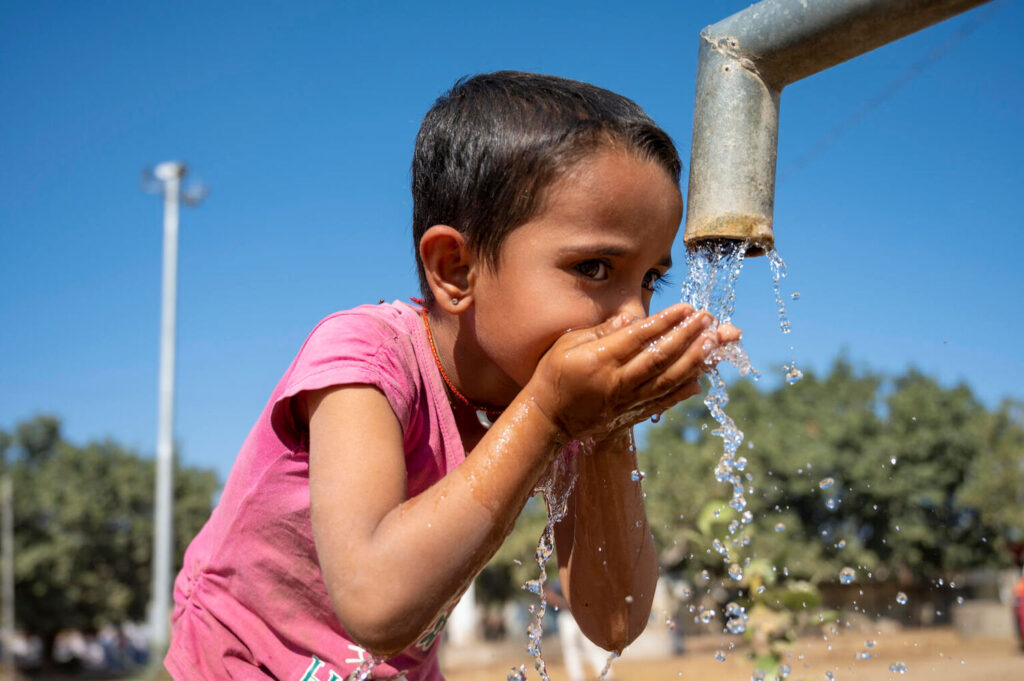UNICEF & Lindström
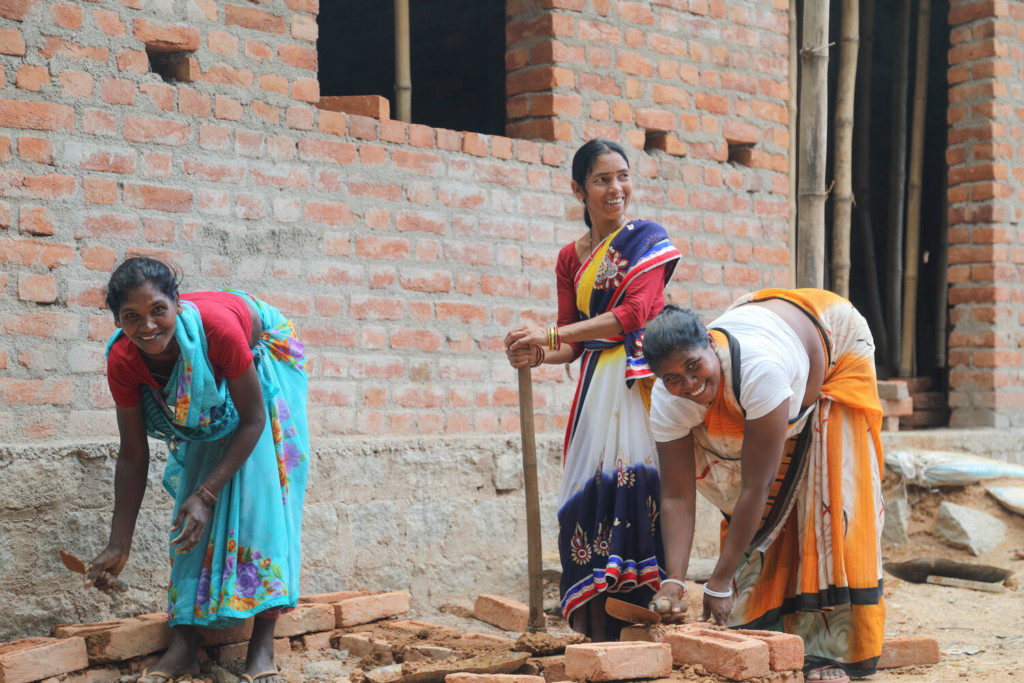
Clean hands and drinking water
Our journey with UNICEF WASH programme in India began in 2007, when we started our operations in the country and wanted to give back to the community.
The objective of the programme is to provide equitable access and use of sustainable, safe, and affordable water, sanitation and hygiene services, where the its name WASH comes from.
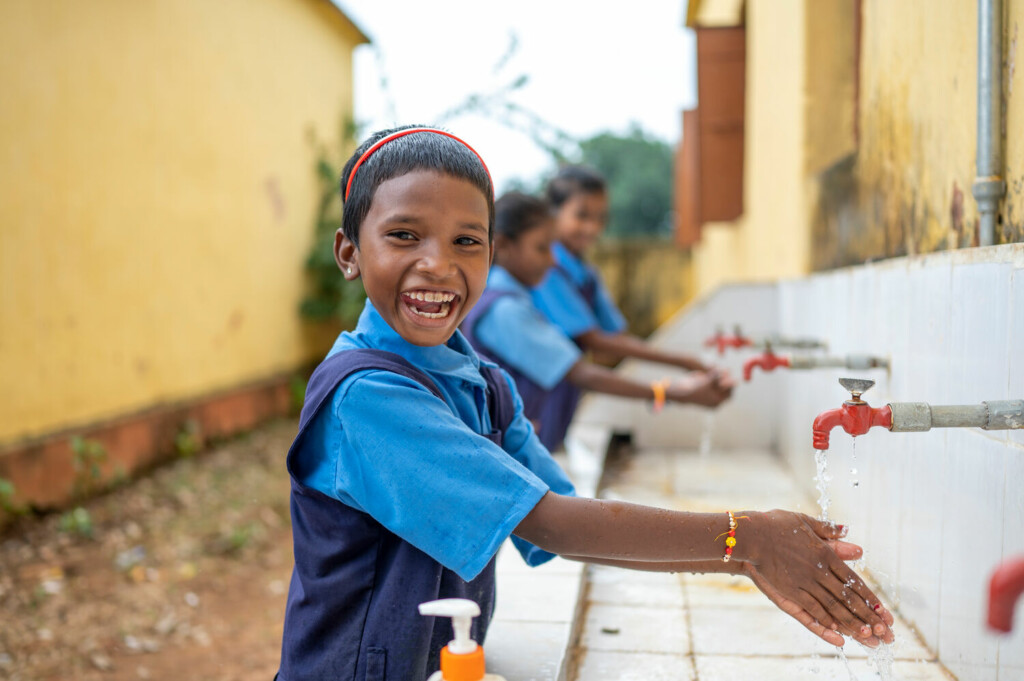
The objectives of WASH programme
We have supported the WASH programme in three different states. Since 2018, we have been supporting the nationwide programme.
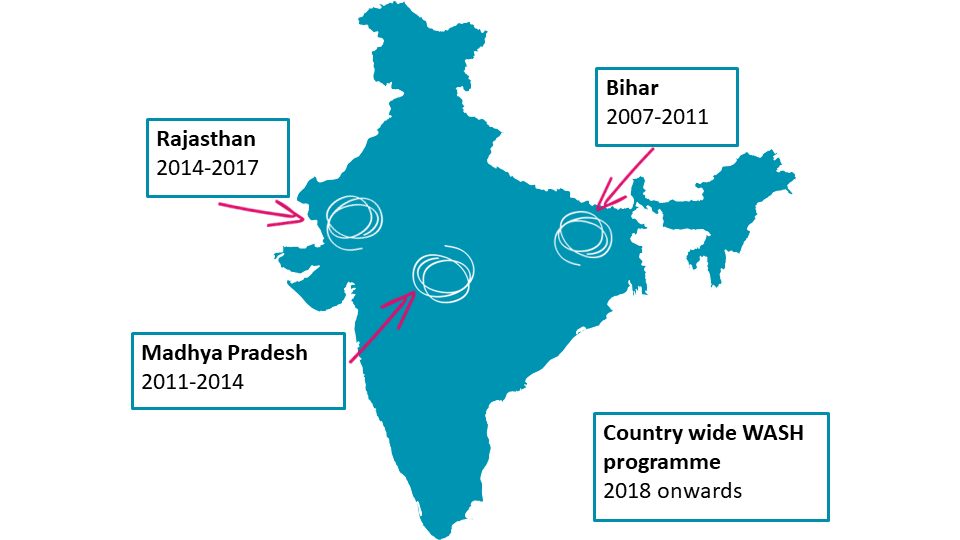
Why does WASH programme matter?
India has accelerated progress towards achieving universal access to safely managed water, sanitation, and hygiene (WASH). However, major deprivations affecting children and women remain, particularly in rural and marginalised communities.
Globally India is the 5th most vulnerable country to climate change. The effects manifest in cyclones, heavy rainfall, floods, landslides and droughts which affected many Indian children. It is estimated to that close to 90 % of the burden of disease attributable to climate change is borne by children under the age of five.

Highlighting results from 2024
In 2024, the WASH programme had two key themes: (1) Strengthening climate and community resilience, and (2) Advancing gender equality and leaving no one behind. Below, you can see a few examples of the focus areas and the achieved results from 2024.

Sanitation and waste management
UNICEF helped 1.55 million people gain access to household toilets. Support to the Swachh Bharat Mission contributed to 249,087 villages achieving Open Defecation Free plus (ODF+) status, including improved solid and liquid waste management services.
UNICEF also supported capacity-building for 2,650 master trainers, who then reached over 82,000 local government representatives, helping to accelerate safe sanitation practices and expand social benefits for sanitation workers.

Safe drinking water
UNICEF supported the national water supply flagship programme, Jal Jeevan Mission, providing access to safely managed drinking water services for over 4.98 million people in rural households.
Technical support focused on climate-resilient service delivery, improving operation and maintenance systems, strengthening water quality monitoring, and building the capacity of 1,001 water institutions and resource centres.

WASH in schools
UNICEF’s support enabled 15,631 schools to gain access to WASH services in 2024, with an additional 40,400 schools progressing with full funding from the Government.
National-level technical assistance also supported the development of climate resilience education modules and the training of more than 1,000 resource persons, who have begun rolling out training at the state level.

WASH in childcare centers
UNICEF continued to strengthen climate-resilient WASH facilities in preschools (Anganwadi centres). In 2024, over 4,000 staff were trained and gap assessments were carried out in 53,029 centres to support safe and child-friendly WASH infrastructure.

Menstrual hygiene management
Approximately 20.5 million people were reached virtually and 694,000 in-person through menstrual hygiene awareness campaigns and activities in 2024.
UNICEF also worked with states to scale up best practices and integrate child-friendly WASH designs to address menstrual hygiene challenges.

WASH in healthcare facilities
UNICEF supported 9,179 public healthcare facilities in developing and implementing WASH improvement action plans. Out of these, 239 facilities received full WASH services to ensure safe, clean, and climate-resilient healthcare environments.
The latest stories and reports from the collaboration

UNICEF WASH programme 2024 empowered communities with safe water, sanitation, and hygiene, transforming millions of lives. Learn more!
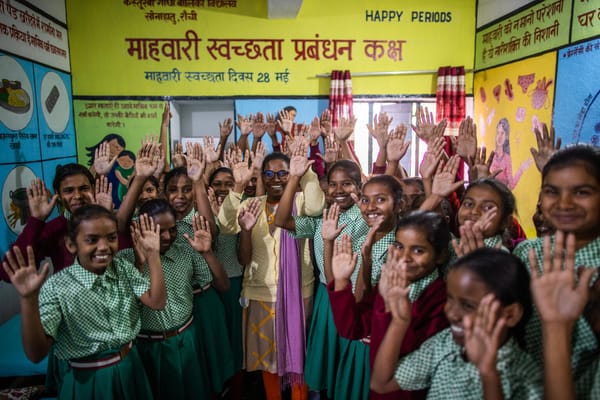
UNICEF WASH programme 2023 empowered communities with safe water and menstrual hygiene, improving millions of lives. Learn more!

